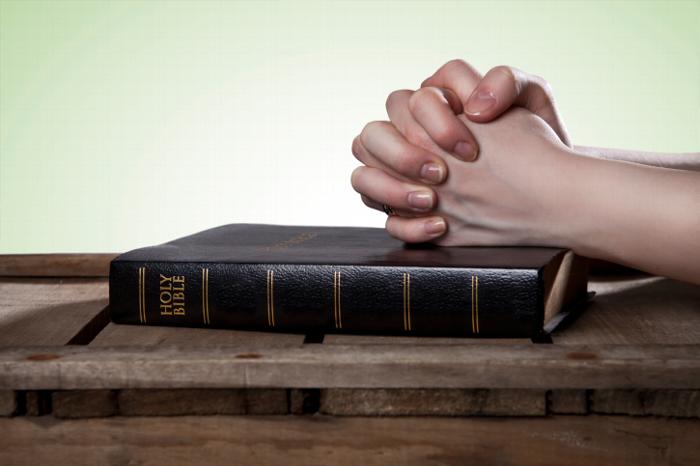Prayer guide reflects commitment to learning from others
By Connie Faber


Watershed Church, a missional USMB community in Kansas City, Mo.’s Waldo and Brookside neighborhoods, is preparing its 2015-16 Vade Mecum, a 12-month prayer guide that also includes a weekly homily and list of Scripture readings that follow the Revised Common Lectionary. This year co-pastors Paul Bartel and Jason Phelps are inviting contributions from writers outside of their congregation.
“Our community was formed around a vision to live life together knowing and loving God, others and ourselves,” write Phelps and Mel Ussery, a Watershed congregant, in the Vade Mecum general information fact sheet. “The Vade Mecum was our attempt to connect our spiritual journeys together more.”
Watershed Church has published Vade Mecum for five years; the 2015-16 guide will be their sixth prayer guide. The Watershed community contributed many of the prayers in the 2014-15 prayer guide while Pastors Bartel and Phelps wrote the other sections.
This year Bartel and Phelps want the Vade Mecum to reflect the community’s commitment to learning from others.
“We simply want this prayer guide to have a variety of voices from a variety of traditions. A guide for our journey—guided by the beautiful spectrum of voices that make up the church today,” write Ussery and Phelps.
The prayer guide follows the church calendar year. It begins with the first week of Advent, typically the last week of November, and goes through the last week of Ordinary Time. Ordinary Time encompasses the time between Pentecost and the last Sunday before the beginning of Advent, known as Christ the King Sunday. The term “ordinary” means “counted time” rather than “common” or “mundane.”
“The Vade Mecum is a guide to help us navigate our journey of life utilizing the ancient helps of the church year, liturgies, and the Revised Common Lectionary,” says Phelps. “This guide incorporates commonly shared means shared by the millions of followers of Jesus across the world as well as throughout time. The vision is for the Vade Mecum to be a companion for our autonomous journey but one that connects our unique journey with God with other’s journey in community.”
Each year, Vade Mecum follows one of three themes. “We have three themes we rotate that correspond to our community’s core values and ‘Life Together’ is one of these themes,” says Phelps in an email interview. This year’s theme is inspired by Dietrich Bonhoeffer’s book, also titled “Life Together.”
“Life Together” connects to the Watershed core value of being community-based. Other themes are “All Are Witnesses,” reflecting the mission focus of the congregation, and “I Will Find a Way,” highlighting the value of being story-guided.
Each week’s entry in the prayer guide focuses on a specific topic derived from passages or multiple passages from that week’s lectionary listing. A short devotional guides the reader’s focus for the week. The short homily is intended to highlight the chosen theme, offer questions for the reader’s consideration or suggest a new way to view the text.
Three prayers follow:
- Prayer of Invitation that asks for God’s aid in daily life.
- Prayer of Mission that emphasizes the reader’s desire to participate with God in what he is doing.
- Prayer of Thanksgiving that remembers who God is and what he has done while expressing gratitude for God’s presence.
“Life is messy,” write Ussery and Phelps in the prayer guide information sheet. “It is full of surprises. Rather than taking the roads less traveled—alone—why not look for a tour guide and dare to ask some friends to join you for the adventure?”
Phelps says the words Vade Mecum refer to a handbook or guide that is constantly at hand for consultation. In ancient times, these documents served a travel maps and guides. Phelps says these guides provided survival information for travelers and entertainment for those who enjoyed learning about other places but wanted to avoid the risks that came with actually traveling.
Phelps describes the first five books of the Bible as originally given by God to people as a travel guide (Deut. 6:1-15). “The five books in the Law reveal God himself as the earliest travel guide when he told Abraham: ‘Go from your country and your kindred and your father’s house to the land that I will show you’ (Gen. 12.1),” says Phelps.
“Imbedded in the concept of a travel guide is the reliance on the guidance of someone who has the knowledge about the journey and thus can provide a means of direction, insight and assistance for your journey. This is the essence of Watershed’s travel guide (Vade Mecum),” says Phelps.


This article is part of the CL Archives. Articles published between August 2017 and July 2008 were posted on a previous website and are archived here for your convenience. We have also posted occasional articles published prior to 2008 as part of the archive. To report a problem with the archived article, please contact the CL editor at editor@usmb.org.

















